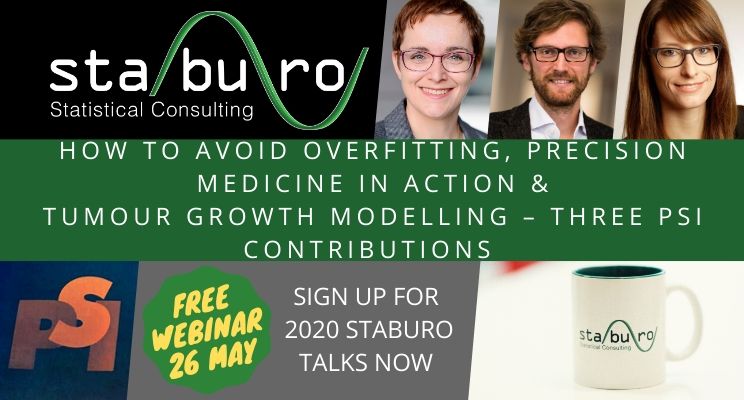
How to Avoid Overfitting, Precision Medicine in Action & Tumour Growth Modelling – three PSI contributions

Staburo’s 2020 PSI contributions in webinar format on 26 May (15:00 – 17:15 CET)
Since the 2020 PSI conference will unfortunately not take place, we decided to share our PSI contributions in an online live webinar with our colleagues. Staburo biostatisticians Nicole Krämer, Laura Schlieker and Hannes Buchner will talk about “How to Avoid Overfitting, Precision Medicine in Action & Tumour Growth Modelling” on 26 May (15:00 – 17:15 CET). You find the agenda and abstracts of the talks below.
If you want to join the webinar please send us an email with your name to info@staburo.com or use the sign up button below. We will not use any of your personal information for other purposes than for giving you access to the online live presentations. Participation is free of charge. We are looking forward to this online event with you!
Sign up now!
Abstract Nicole Krämer’s talk (approx. 15:00 – 15:45 CET on 26 May):
This presentation in based on joint work by Nicole Krämer, Carina Ittrich (Boehringer Ingelheim) and Josef Höfler (Staburo).
The identification of patient subgroups who derive benefit from a new treatment is of crucial importance in precision medicine. For a clinical trial that compares an experimental treatment E to a control treatment C using a time-to-event endpoint, this may translate to finding a subgroup in which the hazard ratio E versus C is particularly low.
Many subgroup identification algorithms have been proposed and studied. They range from cut-off optimization for single biomarkers to the virtual twin method or high-dimensional gene-expression signatures. In general, they differ in the underlying estimand and in the way the subgroup is identified. However, due to their data-driven nature, the estimated relative treatment benefit (e.g. the hazard ratio) within the identified subgroup is almost always biased. This in turn has considerable implications on the clinical development as these ‘naïve’ subgroup effects are too optimistic and cannot be reproduced in a new trial.
We propose cross-validation to obtain a more realistic subgroup effect. In each cross-validation split, the subgroup identification algorithm is applied to the training set. The obtained rule is used to assign patients in the test set to the subgroup or its complement. We define the cross-validated relative treatment benefit as the relative treatment benefit based on this subgroup assignment.
In extensive simulations, we show that on average, the cross-validated relative treatment benefit is very close to the true relative treatment benefit. The approach is further illustrated in an application to a breast cancer study.
Abstract Laura Schlieker’s talk (approx. 15:45 – 16:30 CET on 26 May):
This presentation in based on joint work by Laura Schlieker, Nicole Krämer, Volker Heinemann (LMU Munich), Arndt Stahler (LMU Munich) and Sebastian Stintzing (LMU Munich).
The choice of the right treatment for patients based on their individual genetic profile is of utmost importance in precision medicine. To identify potential signals within the large number of biomarkers it is mandatory to define criteria for signal detection beforehand and apply appropriate statistical models in the setting of high dimensional data.
For the identification of predictive and prognostic genetic variants as well as tumor mutational burden (TMB) in patients with metastatic colorectal cancer, we derived the following pre-defined and hierarchical criteria for signal detection.
- All biomarkers identified via a multivariate variable selection procedure
- If a) reveals no signal, all biomarkers with adjusted p-value ≤ 0.157
- If neither a) nor b) reveals signals, the top 5 biomarkers according to sorted, adjusted p-value
Regularized regression models were used for variable selection, and the stability of the selection process was quantified and visualized. Selected biomarkers were analyzed in terms of their predictive potential on a continuous scale.
With our analyses we confirmed the predictive potential of several already known biomarkers and identified additional promising candidate variants. Furthermore, we identified TMB as a potential prognostic biomarker with a trend towards prolonged survival for patients with high TMB.
Our analyses were supported by power simulations for the variable selection method, assuming different prevalences of biomarkers, numbers of truly predictive biomarkers and effect sizes.
Abstract Hannes Buchner’s talk (approx. 16:30 – 17:15 CET on 26 May):
This presentation in based on joint work by Hannes Buchner and Gabriele Bleckert (Staburo).
In oncology, reliable estimates of progression-free-survival (PFS) are of highest importance because of high failure rates of phase III trials (around 60%). However, PFS-estimations on early readouts with less than 50% of events observed do not use all available information from tumour measurements over time.
We project the PFS-event of each censored patient by using a mixed model describing the tumour burden over time. RECIST-criteria are applied on estimated patient-specific non-linear tumour-trajectories to calculate the projected time-to-progression. PFS is compared between test and reference by hazard ratios.
Several phase III and II simulations with 1000 runs each with 2000 or 80 patients, 6 months accrual and 2 (scenario-1) or 6 months (scenario-2) follow-up were performed. All simulations are based on a published optimal parameterisation of tumour-growth in NSCLC which implies a time-dependent HR.
Sign up now!
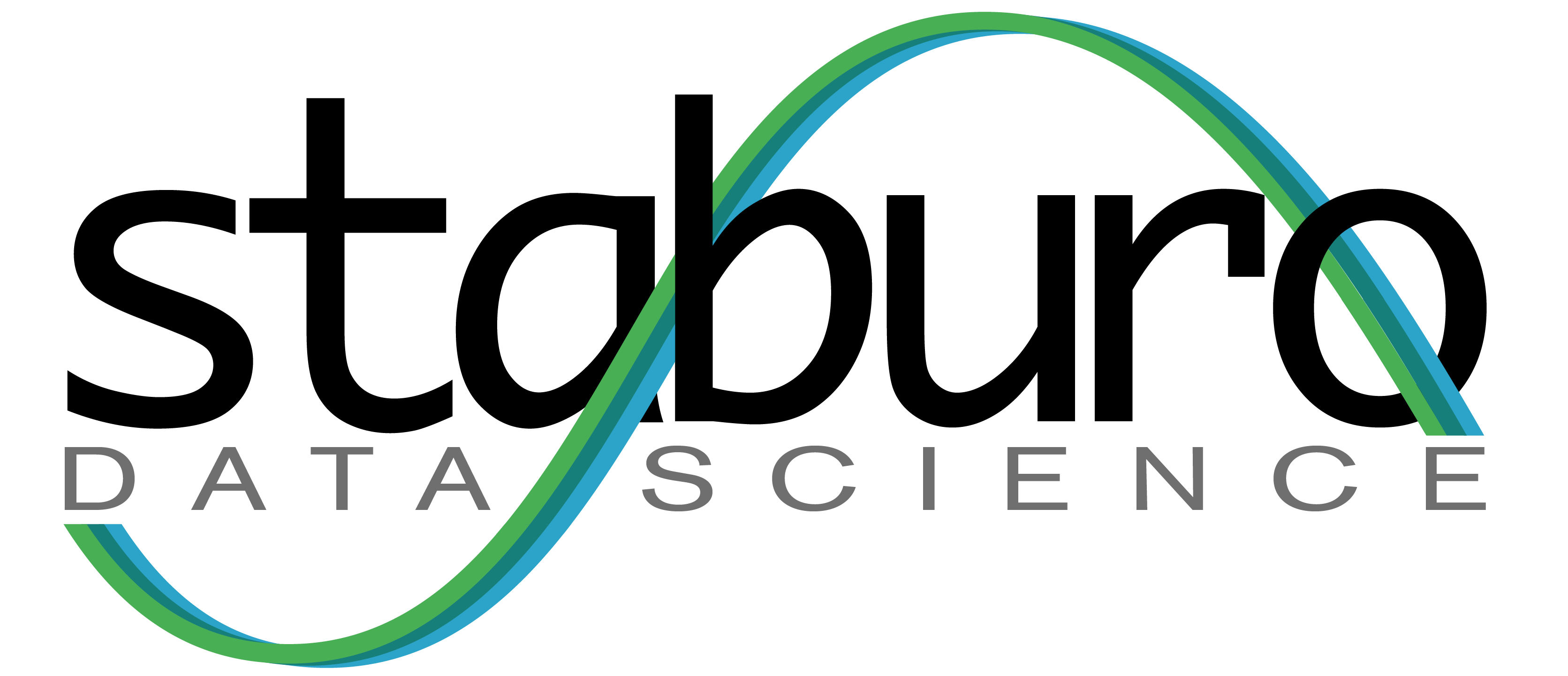
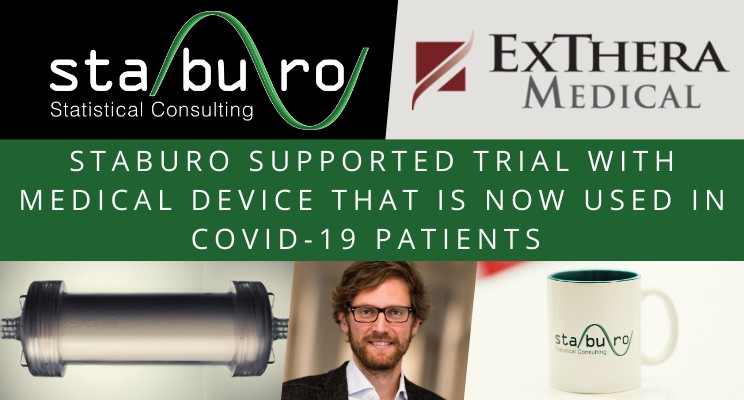

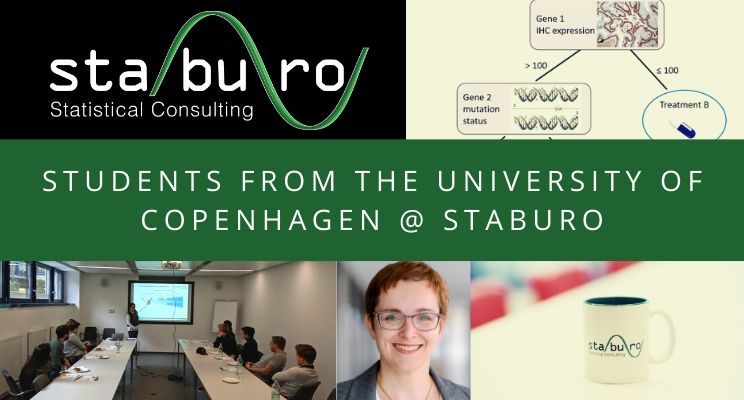
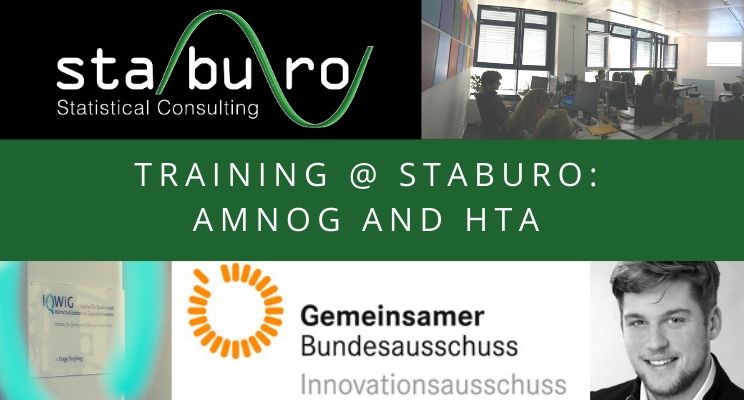
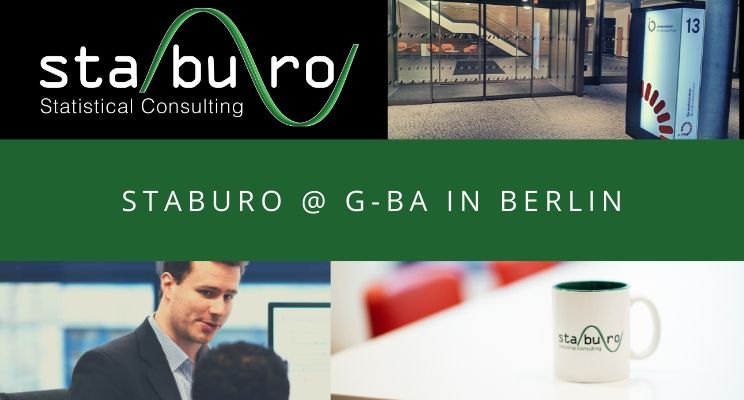
Recent Comments